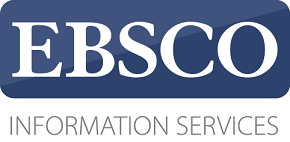The Correlation between Syntactic Knowledge and Reading Comprehension
Abstract
Abstract: This study aimed to find out the precise degree of relationship between syntactic knowledge (represented by grammar scores) and reading comprehension within EPT context. The data collected were in form of examinees’ individual scores of EPT taken from two language institutes. The data representing 160 examinees were divided into two sets of scores: grammar and reading. Utilizing statistical analysis software, the researcher analyzed the data using Pearson’s correlation coefficient. The result shows that syntactic knowledge and reading comprehension have strong positive correlation. It indicates that examinees’ grammar scores might predict their reading scores within EPT.
Key Words: syntactic knowledge, reading comprehension
Abstrak: Penelitian ini bertujuan untuk mengetahui nilai pasti dari hubungan antara pengetahuan sin-taktis (diwakili oleh nilai tata bahasa) dengan pemahaman membaca dalam konteks EPT. Data yang ter-kumpul berbentuk nilai individu peserta EPT yang diperoleh dari dua lembaga bahasa. Data yang me-wakili 160 peserta dibagi menjadi dua: nilai tata bahasa membaca. Dengan memanfaatkan aplikasi anali-sis statistik, peneliti menganalisis data menggunakan koefisien korelasi Pearson. Hasilnya menunjukkan bahwa pengetahuan sintaksis dan pemahaman membaca memiliki korelasi positif yang kuat. Hal tersebut mengindikasikan bahwa nilai tata bahasa peserta mungkin dapat memprediksi nilai membaca mereka dalam EPT.
Kata kunci: pengetahuan sintaksis, pemahaman membaca
Keywords
Full Text:
PDFReferences
Asiamah, N., Mensah, H. K., & Oteng-Abayie, E. F. (2017). General, target, and accessible population: Demystifying the concepts for effective sampling. The Qualitative Report, 22(6), 1607.
Banerjee, A., & Chaudhury, S. (2010). Statistics without tears: Populations and samples. Industrial Psychiatry Journal, 19(1), 60–65. doi: 10.4103/0972-6748.77642.
Bartlett, J. E., Kotrlik, J. W., & Higgins, C. C. (2001). Organizational research: Determining appropriate sample size in survey research appropriate sample size in survey research. Information Technology, Learning, and Performance Journal, 19(1), 43–50. doi: 10.1109/LPT.2009.2020494.
Cain, K. (2007). Syntactic awareness and reading ability: Is there any evidence for a special relationship? Applied Psycholinguistics, 28(4), 679–694. doi: 10.1017/S0142716407070361.
Chen, K. Y. (2014). Vocabulary, syntactic knowledge and reading comprehension: the perspective of college EFL Students. An Interdisciplinary Journal, 39–52.
Hosseini Fatemi, A. (2012). The predictive power of vocabulary breadth & depth, and syntactic knowledge in reading comprehension performance of Iranian advanced EFL students. Studies in Applied Linguistics, 2(2), 1–5.
Guo, Y., Roehrig, A. D., & Williams, R. S. (2011). The relation of morphological awareness and syntactic awareness to adults’ reading comprehension: Is vocabulary knowledge a mediating variable. Journal of Literacy Research, 43(2), 159–183. doi: 10.1177/1086296X11403086.
Hashemin, K., & Mahmoudi, A. (2016). Effects of STM span, syntactic awareness, and vocabulary knowledge on Iranian EFL learners’ reading comprehension. Theory and Practice in Language Studies, 6(12), 2297–2303. doi: 10.17507/tpls.0612.09.
Jung, J. (2009). Second language reading and the role of grammar. Studies in Applied Linguistics and TESOL, 9(2).
Lopez, A. L. (2008). To what extent does grammar knowledge account for competence in FL reading comprehension in university students?. Revista española de lingüística aplicada, 21, 181–200.
Morvay, G. (2012). The relationship between syntactic knowledge and reading comprehension in EFL learners. Studies in Second Language Learning and Teaching, 2(3), 415–438.
Sedibe, M. (2006). A comparative study of the variables contributing towards the establishment of a learning culture in schools (Unpublished doctoral dissertation). University of Pretoria, South Africa.
Copyright (c) 2019 Jurnal Pendidikan Humaniora

This work is licensed under a Creative Commons Attribution-ShareAlike 4.0 International License.
Jurnal Pendidikan Humaniora Graduate School, Universitas Negeri Malang JPH is licensed under Creative Commons Attribution-ShareAlike 4.0 International License |









